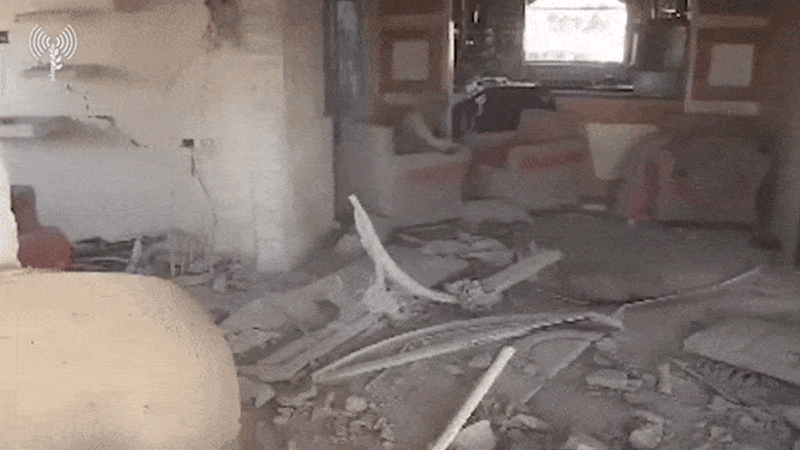Published 15:18 IST, October 28th 2024
Will Mossad Boss Seek Release of Hostages in Exchange for Sinwar's Body in Doha?
Sinwar’s legacy among Hamas followers makes his body’s release a significant bargaining chip for Israel as they work to free hostages held in Gaza.

Amid escalating tensions in the Middle East, Mossad chief David Barnea is in Doha to discuss a possible hostage release deal with Hamas. The talks, facilitated by CIA Director Bill Burns and Qatari Prime Minister Mohammed bin Abdulrahman Al Thani, reflect an urgent attempt by Israel to secure the freedom of hostages held by Hamas following the October 7 attacks. According to Israeli Prime Minister Benjamin Netanyahu ’s office, officials are discussing "various possibilities to restart negotiations" to secure the release of Israeli captives held in Gaza.
Reports in both Arab and Hebrew media suggest that Israel is considering a “small deal” to initiate discussions with Hamas, with the potential release of Yahya Sinwar's body as part of the ceasefire talks.
Yahya Sinwar, the slained Hamas chief considered to be the architect of the October 7 attack, was killed by Israeli Defense Forces (IDF) earlier this month in a surprise encounter. Following his death, IDF confirmed his identity via DNA testing. Images from a recent IDF drone video showed Sinwar in a last act of defiance, seated on a sofa before Israeli forces targeted his location, destroying the building he was in with a tank strike.
Sinwar’s legacy among Hamas followers makes his body’s release a significant bargaining chip for Israel as they work to free hostages held in Gaza.
However, initial reports indicate that Hamas leaders will not directly meet with Mossad; instead, all negotiations will be facilitated by Qatar. This arrangement points to the crucial role Qatar plays as a mediator between Israel and Hamas, with a view toward achieving both humanitarian and strategic outcomes.
Egypt's Ceasefire Proposal and Rising Regional Tensions
Meanwhile, Egypt has proposed a two-day ceasefire in Gaza to create a window for hostage negotiations. Egyptian President Abdel-Fattah el-Sissi announced Sunday that this pause in hostilities would allow four hostages to be freed. However, Hamas has expressed that a precondition for any such ceasefire would require the complete withdrawal of Israeli forces from Gaza. Netanyahu, on the other hand, has reiterated that Israeli troops will remain in Gaza until Hamas's infrastructure is dismantled, underscoring the complexities in achieving a temporary halt to violence.
At the same time, Israel finds itself at odds not only with Hamas in Gaza but also with Hezbollah in Lebanon. The intensifying standoff has expanded into a broader conflict involving Israel and Iran, the primary backer of both Hamas and Hezbollah. For the first time this weekend, Israel openly launched retaliatory strikes against Iranian targets in response to a recent ballistic missile attack from Iran.
Israel’s Strategic Gains and Iran's Response
Israeli Defense Minister Yoav Gallant, speaking at a government memorial for the October 7 attack’s Hebrew anniversary, acknowledged that achieving all of Israel’s goals will not be possible solely through military means. He suggested that “painful compromises” may be required to bring Israeli captives home, a remark seen as a nod toward the potential diplomatic complexities ahead.
Prime Minister Netanyahu, making his first comments about Israel’s recent strikes on Iranian military sites, asserted that the offensive “severely harmed Iran’s defense capabilities and its ability to produce missiles.” Satellite imagery has confirmed significant damage to two Iranian military bases, one of which is reportedly associated with Tehran’s discontinued nuclear program and the other tied to its ballistic missile infrastructure. Iran, acknowledging casualties but providing limited details, called the strikes a direct escalation.
Iran’s supreme leader, Ayatollah Ali Khamenei, stated that the “response to Israel’s attacks is ultimately up to Iran’s authorities,” while emphasizing that the “power and will of the Iranian people” should not be underestimated. Khamenei, as the ultimate authority on matters of national security, will likely have the final say on any Iranian response to the Israeli assault.
The Road Ahead
The meeting in Doha signals Israel’s acknowledgment of the need for diplomatic channels to address the hostage situation and wider regional concerns. With Qatar’s mediation, Israel may negotiate a path to hostage releases, potentially in exchange for Sinwar’s body, though significant obstacles remain on the way to any lasting resolution. As stakeholders weigh military action with diplomacy, the fate of Israeli captives and Gaza that has almost turned into a rubble remains critically hinged on the outcome of the Doha talks.
Updated 16:57 IST, October 28th 2024




